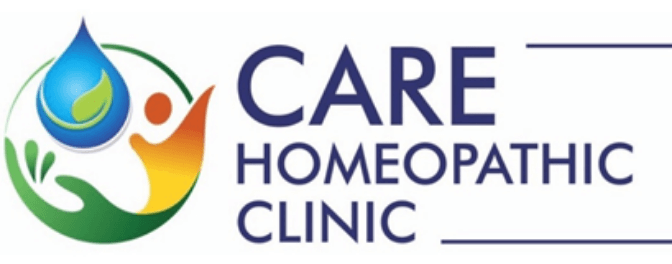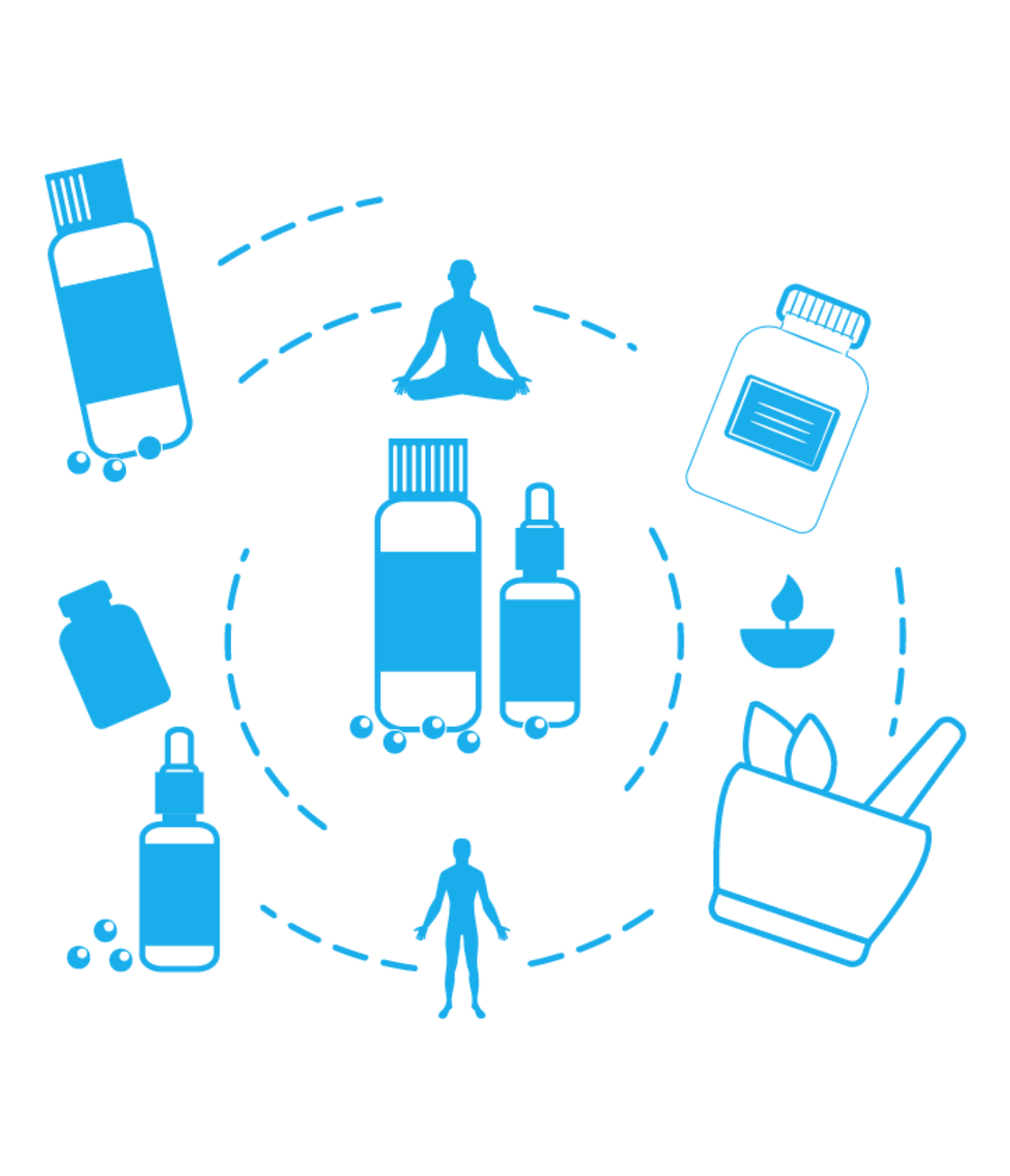Rheumatoid Arthritis
In the journey of life every step takes us closer to our future & goals. Every step has to be free of any stress so that the journey of Life becomes enjoyable. But nowadays we see many people struggling for a comfortable walk because of the commonly known condition called Arthritis. Contrary to what everyone believes this condition is not related to age hence when it occurs in young people it takes its toll on their complete life journey. Let us tell you something more about Rheumatoid Arthritis commonly referred to as Arthritis.
Rheumatoid arthritis (RA) is an autoimmune disease that causes chronic inflammation of the joints. While inflammation of the tissue around the joints and inflammatory arthritis are characteristic features of rheumatoid arthritis, the disease also causes inflammation and injury in other organs in the body.
Patients with autoimmune diseases have antibodies in their blood that target their own body tissues, where they are associated with inflammation. As it affects multiple other organs of the body, rheumatoid arthritis is referred to as a systemic illness and is sometimes called rheumatoid disease.
While Rheumatoid Arthritis is a chronic illness, meaning it lasts for years, patients may experience long periods without symptoms. However, rheumatoid arthritis is typically a progressive illness that has the potential to cause joint destruction and functional disability.
The joint inflammation of Rheumatoid Arthritis causes swelling, pain, stiffness, and redness in the joints. The inflammation of rheumatoid disease can also occur in tissues around the joints, such as the tendons, ligaments, and muscles.
In some people with Rheumatoid Arthritis, chronic inflammation leads to the destruction of the cartilage, bone, and ligaments, causing deformity of the joints. Damage to the joints occur early in the disease and are progressive. Moreover, studies have shown that the progressive damage to the joints does not necessarily correlate with the degree of pain, stiffness, or swelling present in the joints.
Rheumatoid Arthritis is a common Rheumatic disease & is three times more common in women as in men. It afflicts people of all races equally. The disease begin at any age and even affects children (juvenile rheumatoid arthritis), but it most often starts after 40 years of age and before 60 years of age. In some families, multiple members are affected, suggesting a genetic basis for the disorder.
Causes of Rheumatoid Arthritis
The cause of rheumatoid arthritis is unknown.
Even though infectious agents such as viruses, bacteria, and fungi have long been suspected, none has been proven as the cause.
It is believed that the tendency to develop rheumatoid arthritis may be genetically inherited (hereditary). Certain genes have been identified that increase the risk for rheumatoid arthritis.
It is also suspected that certain infections or factors in the environment might trigger the activation of the immune system in susceptible individuals. This misdirected immune system then attacks the body’s own tissues. This leads to inflammation in the joints and sometimes in various organs of the body, such as the lungs or eyes.
Signs & Symptoms of Rheumatoid Arthritis
The symptoms of rheumatoid arthritis come and go, depending on the degree of tissue inflammation. When body tissues are inflamed, the disease is active. When tissue inflammation subsides, the disease is inactive (in remission).
When the disease is active the symptoms can include:
- Fatigue
- Muscle and joint stiffness and aches especially in the mornings & after periods of inactivity.
- In severe cases the joints become red, swollen and tender.
- Loss of energy and lack of appetite.
- Rheumatoid arthritis usually affects multiple joints in a symmetrical pattern.
The small joints of both the hands and wrists are often involved. Symptoms in the hands with rheumatoid arthritis include difficulty with simple tasks of daily living, such as turning door knobs and opening jars. The small joints of the feet are also commonly involved, which lead to painful walking.
Chronic inflammation causes damage to body tissues, including cartilage and bone. This leads to a loss of cartilage and erosion and weakness of the bones as well as the muscles, resulting in joint deformity, destruction, and loss of function.
Rarely, rheumatoid arthritis affects the joint that is responsible for the tightening of our vocal cords to change the tone of our voice, the cricoarytenoid joint. When this joint is inflamed, it causes hoarseness of the voice. Symptoms in children with rheumatoid arthritis include limping, irritability, crying, and poor appetite.
Complications of Rheumatoid Arthritis
Since rheumatoid arthritis is a systemic disease, its inflammation can affect organs and areas of the body other than the joints:
- Inflammation of the eyes causes dryness & corneal abrasions & inflammation of sclera causes sceleritis which is a very serious condition.
- Rheumatoid inflammation of the lung lining (pleuritis) causes chest pain with deep breathing, shortness of breath, or coughing.
- Inflammation of the tissue (pericardium) surrounding the heart, called pericarditis, causes a chest pain that typically changes in intensity when lying down or leaning forward.
- Rheumatoid disease reduces the number of red blood cells (anemia) and white blood cells.
- Nerves often become pinched in the wrists to cause carpal tunnel syndrome.
- Firm lumps under the skin (rheumatoid nodules) occur around the elbows and fingers where there is frequent pressure. Even though these nodules usually do not cause symptoms, they sometimes become infected.
Homeopathy for Rheumatoid Arthritis
Homeopathy offers excellent treatment for the cases of RA, especially for those who have not developed joint deformities. The pain control is very effective with homeopathy and this is without any side effects whatsoever. The treatment also has a role to play in controlling the progress of the condition to some extent and in delaying the onset of complications.
As we know that homeopathy takes into consideration the person as a whole the treatment & a holistic approach is what benefits the patient in the long run.
Conventional medicine helps only to ease pain through painkillers & boosting the immune system with steroids but the side effect of these medicines adds to the worries of the patient rather than giving relief.
Certain homeopathic medicines like Byonia, Rhustox, Colchicum help the patient to get relief from the symptoms.
Deep acting polycrest medicines help in curtailing the miasmatic factor & thus preventing further progress of the disease.
Complications of RA can be arrested with homeopathic treatment & the patient can have a better quality of life.
Dr. Ankur
Rheumatoid Arthritis
In the journey of life every step takes us closer to our future & goals. Every step has to be free of any stress so that the journey of Life becomes enjoyable. But nowadays we see many people struggling for a comfortable walk because of the commonly known condition called Arthritis. Contrary to what everyone believes this condition is not related to age hence when it occurs in young people it takes its toll on their complete life journey. Let us tell you something more about Rheumatoid Arthritis commonly referred to as Arthritis.
Rheumatoid arthritis (RA) is an autoimmune disease that causes chronic inflammation of the joints. While inflammation of the tissue around the joints and inflammatory arthritis are characteristic features of rheumatoid arthritis, the disease also causes inflammation and injury in other organs in the body.
Patients with autoimmune diseases have antibodies in their blood that target their own body tissues, where they are associated with inflammation. As it affects multiple other organs of the body, rheumatoid arthritis is referred to as a systemic illness and is sometimes called rheumatoid disease.
While Rheumatoid Arthritis is a chronic illness, meaning it lasts for years, patients may experience long periods without symptoms. However, rheumatoid arthritis is typically a progressive illness that has the potential to cause joint destruction and functional disability.
The joint inflammation of Rheumatoid Arthritis causes swelling, pain, stiffness, and redness in the joints. The inflammation of rheumatoid disease can also occur in tissues around the joints, such as the tendons, ligaments, and muscles.
In some people with Rheumatoid Arthritis, chronic inflammation leads to the destruction of the cartilage, bone, and ligaments, causing deformity of the joints. Damage to the joints occur early in the disease and are progressive. Moreover, studies have shown that the progressive damage to the joints does not necessarily correlate with the degree of pain, stiffness, or swelling present in the joints.
Rheumatoid Arthritis is a common Rheumatic disease & is three times more common in women as in men. It afflicts people of all races equally. The disease begin at any age and even affects children (juvenile rheumatoid arthritis), but it most often starts after 40 years of age and before 60 years of age. In some families, multiple members are affected, suggesting a genetic basis for the disorder.
Causes of Rheumatoid Arthritis
The cause of rheumatoid arthritis is unknown.
Even though infectious agents such as viruses, bacteria, and fungi have long been suspected, none has been proven as the cause.
It is believed that the tendency to develop rheumatoid arthritis may be genetically inherited (hereditary). Certain genes have been identified that increase the risk for rheumatoid arthritis.
It is also suspected that certain infections or factors in the environment might trigger the activation of the immune system in susceptible individuals. This misdirected immune system then attacks the body’s own tissues. This leads to inflammation in the joints and sometimes in various organs of the body, such as the lungs or eyes.
Signs & Symptoms of Rheumatoid Arthritis
The symptoms of rheumatoid arthritis come and go, depending on the degree of tissue inflammation. When body tissues are inflamed, the disease is active. When tissue inflammation subsides, the disease is inactive (in remission).
When the disease is active the symptoms can include:
- Fatigue
- Muscle and joint stiffness and aches especially in the mornings & after periods of inactivity.
- In severe cases the joints become red, swollen and tender.
- Loss of energy and lack of appetite.
- Rheumatoid arthritis usually affects multiple joints in a symmetrical pattern.
The small joints of both the hands and wrists are often involved. Symptoms in the hands with rheumatoid arthritis include difficulty with simple tasks of daily living, such as turning door knobs and opening jars. The small joints of the feet are also commonly involved, which lead to painful walking.
Chronic inflammation causes damage to body tissues, including cartilage and bone. This leads to a loss of cartilage and erosion and weakness of the bones as well as the muscles, resulting in joint deformity, destruction, and loss of function.
Rarely, rheumatoid arthritis affects the joint that is responsible for the tightening of our vocal cords to change the tone of our voice, the cricoarytenoid joint. When this joint is inflamed, it causes hoarseness of the voice. Symptoms in children with rheumatoid arthritis include limping, irritability, crying, and poor appetite.
Complications of Rheumatoid Arthritis
Since rheumatoid arthritis is a systemic disease, its inflammation can affect organs and areas of the body other than the joints:
- Inflammation of the eyes causes dryness & corneal abrasions & inflammation of sclera causes sceleritis which is a very serious condition.
- Rheumatoid inflammation of the lung lining (pleuritis) causes chest pain with deep breathing, shortness of breath, or coughing.
- Inflammation of the tissue (pericardium) surrounding the heart, called pericarditis, causes a chest pain that typically changes in intensity when lying down or leaning forward.
- Rheumatoid disease reduces the number of red blood cells (anemia) and white blood cells.
- Nerves often become pinched in the wrists to cause carpal tunnel syndrome.
- Firm lumps under the skin (rheumatoid nodules) occur around the elbows and fingers where there is frequent pressure. Even though these nodules usually do not cause symptoms, they sometimes become infected.
Homeopathy for Rheumatoid Arthritis
Homeopathy offers excellent treatment for the cases of RA, especially for those who have not developed joint deformities. The pain control is very effective with homeopathy and this is without any side effects whatsoever. The treatment also has a role to play in controlling the progress of the condition to some extent and in delaying the onset of complications.
As we know that homeopathy takes into consideration the person as a whole the treatment & a holistic approach is what benefits the patient in the long run.
Conventional medicine helps only to ease pain through painkillers & boosting the immune system with steroids but the side effect of these medicines adds to the worries of the patient rather than giving relief.
Certain homeopathic medicines like Byonia, Rhustox, Colchicum help the patient to get relief from the symptoms.
Deep acting polycrest medicines help in curtailing the miasmatic factor & thus preventing further progress of the disease.
Complications of RA can be arrested with homeopathic treatment & the patient can have a better quality of life.


